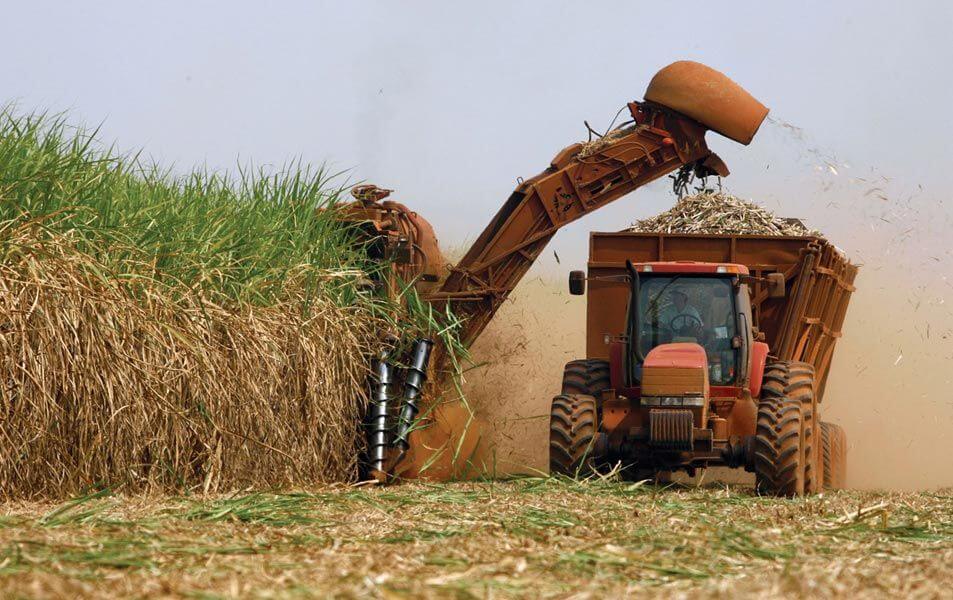Hippo Valley feels effects of unfavourable weather conditions
Hippo Valley Estates (Hippo) says total sugar produced in the quarter to December 31, 2023, which marks the end of the crushing season, declined 6 percent to 194 684 tonnes on the back of a drop in yields and unfavourable weather conditions.
Chairman, Mr Canaan Dube, in a statement accompanying financials, said the yield drop was a result of reduced ‘plant cane’ harvested in the current period.
“Availability of critical spares, mainly due to cashflow constraints on account of the impact of cheap imports of sugar, resulted in unscheduled mill stoppages.
“Lost time available as a measure of plant reliability increased to 17,8 percent from 14,6 percent recorded in the same period prior year, and that affected production performance, leading to carryover cane amounting to 652 hactares,” he said.
Mr Dube, however, noted that cane quality measured as estimated recoverable crystals in sugar cane (ERC) and the cane-to-sugar ratio (the tonnes of cane required to be crushed to produce one tonne of raw sugar) were both above prior-year realisations of 11,64 percent and 8,39 percent, respectively, resulting in improved recovery efficiencies.
According to Hippo, Zimbabwe Sugar Sales (Private) Limited (ZSS) remains the sole marketing desk for raw and brown sugar produced by the Zimbabwe sugar industry to safeguard distribution efficiencies in both the local and export markets.
Mr Dube said Hippo’s share of the total industry sugar sales volume of 295,382 metric tonnes for the nine months to December 31, 2 2023, was 52,54 percent.
Total industry sugar sales into the domestic market for the same period amounted to 227,855 metric tonnes and were 18 percent below the comparable period in the prior year.
“The decrease was largely on account of duty-free sugar imports from the region that came into the local market following the promulgation of Statutory Instrument 80 of 2023.
“Coming from softer currency economies, regional exporters to Zimbabwe capitalised on the multicurrency trading regime in Zimbabwe and the removal of import duties,” said Mr Dube.
He noted that the industry implemented aggressive but costly initiatives to defend market share against duty-free imports during the period under review, resulting in reduced net realisations.
However, the upward revision of the foreign currency retention ratio on local US dollar sales to 100 percent helped cushion the local market revenue drop.
During the period under review, export sales volume increased by 68 percent to 67,527 metric tonnes as the displaced local market volume was redirected to the export markets to generate the much-needed working capital to sustain operations.
Mr Dube said notwithstanding El Nino episodes experienced in the third quarter characterised by dry spells, the major water supply dams are envisaged to provide sufficient cover for the industry’s irrigation regimes for approximately two seasons, with Tugwi-Mukosi at 85.95 percent and Mutirikwi Dam at 94.61 percent as of December 31, 2023.
He said the company’s strategic focus remains on improving yields, ensuring plant reliability, maximising capacity utilisation, and achieving sustainable operating cost efficiencies in the medium to long term.
“In the short term, the priority is to successfully complete the off-crop programme, which is well underway to ensure an efficient and reliable milling campaign in the 2024–25 season, improving quality and safety performance, reconfiguring the route to market, and implementing innovative work streams to contain the cost of goods and services.
“The company will also leverage available borrowing facilities up to the end of the financial year to cushion its working capital in light of off-crop requirements,” said Mr Dube.
He noted that the industry is looking forward to improved domestic sales volumes after the recent repeal of Statutory Instrument 80 of 2023, effective January 1, 2024, which previously allowed duty-free sugar imports into the country, although the benefit may not be realised immediately due to the high stocks of imported sugar currently available in the market.
Mr Dube said marketing initiatives remain focused on regaining the local market share and optimising returns from international premium markets.
-herald











